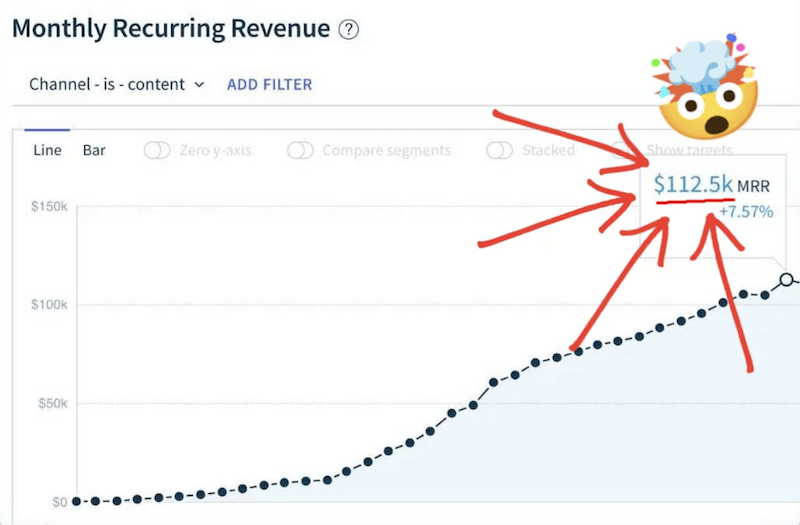What is artificial intelligence?
Have you ever chatted with a customer service bot, asked Siri for directions, or been amazed by how Netflix knows exactly what shows you'll love? Then say hello to artificial intelligence. AI is like the cool cousin of human brains — it's all about creating smart machines that can think, learn, and make decisions just like we do. It's the secret sauce behind self-driving cars, virtual assistants, and even those pesky spam filters in your email. So next time you're marveling at a robot chef cooking up gourmet meals or playing chess against an unbeatable computer opponent, remember: it's all thanks to the magic of artificial intelligence!
Artificial intelligence fast facts
AI has evolved from Alan Turing's 1950s experiments to today's deep learning models.
From Siri to self-driving cars, AI is more a part of your daily life than you might realize.
Most current AI algorithms excel at specific tasks but can't easily adapt to new challenges without human intervention.
AI isn't just tech talk; it raises real ethical questions about job loss, safety, and privacy.
AI development isn't a one-man show; it's a collective brainchild of numerous scientists and organizations.
What does AI intelligence do?
AI, or artificial intelligence, is all about creating intelligent machines that can perform tasks without human intervention. Think of self-driving cars navigating through traffic or Siri understanding your voice commands — these are just a few examples of what AI can do. At its core, AI aims to replicate and even surpass human intelligence by using machine learning models and algorithms.
One famous example of an early attempt at creating intelligent machines was Alan Turing's work on the computer program Logic Theorist with Walter Pitts back in December 1955. Fast forward to today, we have advanced neural networks and deep learning algorithms powering popular applications like facial recognition systems and search engines, for example.
AI has come a long way since John McCarthy coined the term at Dartmouth College in 1956. Remember Deep Blue defeating Garry Kasparov in chess? That was an expert system designed for a single task — playing chess. Today's AIs are capable of handling a wide variety of tasks thanks to advancements like Google Cloud AI, OpenAI's GPT algorithm, and Oracle Cloud Infrastructure AI Services.

IBM supercomputer Deep Blue vs world-chess champion Garry Kasparov on May 11, 1997 in a high-stakes chess match with a prize of $1.1 million. Photograph: AI Business
What is artificial intelligence with examples?
Here are some real-world examples to better understand AI:
- Self-driving cars: Tesla's Autopilot system uses advanced neural networks to process data from cameras and sensors mounted on the vehicle. This enables it to make split-second decisions about steering adjustments or braking, without any human intervention.
- Speech recognition: Apple's Siri and Amazon's Alexa are prime examples of voice-activated assistants powered by AI algorithms capable of understanding spoken commands in various languages while providing relevant responses.
- Fraud detection: Financial institutions like banks employ machine learning models for identifying unusual transactions that may indicate fraudulent activities — saving millions by preventing unauthorized access before it happens!
- Facial recognition technology: Used widely in security applications such as airport immigration checks or unlocking smartphones like iPhone X using Face ID. These systems rely on deep learning algorithms trained with vast datasets containing facial features captured under different lighting conditions and angles.
- Google Translate: The popular translation tool leverages a subset of machine learning called deep learning which allows it to learn complex relationships between languages over time — enabling more accurate translations across multiple languages and dialects.
- Chatbots like ChatGPT and Google Bard: These AI-powered conversational agents are designed to engage with users in a natural, human-like manner. They can answer questions, provide recommendations, or even entertain with jokes and stories.
How is AI being used today?
AI has seamlessly woven itself into our daily routines, making various tasks more efficient and enhancing our experiences. One of the most common ways we interact with AI is through personal assistants like Siri, Alexa, or Google Assistant. These voice-activated helpers can set reminders for us, answer questions on-the-fly, and even control smart home devices — all without lifting a finger.
Another area where AI plays a significant role is entertainment. Streaming services such as Netflix and Spotify use machine learning algorithms to analyze user preferences and offer personalized recommendations based on viewing or listening history. This means you're likely to discover new movies or songs tailored specifically to your taste.
Even behind-the-scenes applications like email spam filters use machine learning models trained on vast datasets containing examples of both legitimate emails and unwanted ones — ensuring only important messages make it into your inbox while keeping pesky spammers at bay.
Who created AI?
The creation of AI is a collective effort by numerous scientists, mathematicians, and researchers over time. Early pioneers like Alan Turing developed the Turing Test in the 1950s to determine if machines could exhibit intelligent behavior.
John McCarthy coined the term "artificial intelligence" during his proposal for the Dartmouth Conference held in 1956. This event brought together leading minds such as Marvin Minsky, Nathaniel Rochester, and Claude Shannon — all contributing their expertise towards foundational ideas for AI research.
Since then, countless experts have contributed immensely towards advancing this field further — including Geoffrey Hinton's work on deep learning and neural networks. As well as more recent advancements made by organizations like Google, Microsoft, and OpenAI.
What is the difference between human intelligence and AI?
The key differences between human intelligence and artificial intelligence lie in their origins, capabilities, adaptability, and learning processes. Human intelligence stems from our biological makeup — specifically the complex neural networks within our brains that have evolved over millions of years. In contrast, AI is a product of computer programming designed by humans to replicate or even surpass certain aspects of human cognition.
When it comes to capabilities, while both humans and AIs can learn new skills or solve problems through reasoning, there are some areas where each excels uniquely. Humans possess emotional intelligence which allows us to empathize with others and navigate social situations effectively — something current AI systems struggle with significantly. On the other hand, AIs excel at processing vast amounts of data quickly and accurately without getting tired — making them ideal for tasks like pattern recognition or number crunching.
Adaptability plays a crucial role when comparing these two forms of intellect as well. While we as individuals can seamlessly switch gears from one task type/context/environment/language/culture and so on, most existing AIs tend to be highly specialized towards specific tasks/domains — limiting their overall versatility compared to us.

An intimate moment between woman and technology as the latter offers a red flower, blurring the lines between human and machine. Photograph: Pavel Danilyuk via Pexels
Is AI good or bad?
AI is a double-edged sword. On the one hand, it has the potential to revolutionize industries and improve our quality of life through innovations in healthcare, transportation, communication, and more. It can help us solve complex problems faster than ever before while enhancing productivity across various sectors.
On the other hand, there are legitimate concerns surrounding privacy invasion, job displacement due to automation, or misuse for malicious purposes such as deepfakes or misinformation campaigns. The ethical implications of AI development cannot be ignored.
Ultimately, whether AI is deemed "good" or "bad" depends on how we choose to develop and regulate this powerful tool — the benefits need to outweigh potential risks by prioritizing transparency and responsible practices as we develop and use artificial intelligence.
Will AI take over humanity?
The idea of AI taking over humanity is a popular subject in science fiction. However, the reality is more nuanced. While AI has the potential to improve our lives and solve complex problems, its development should be guided by ethical considerations and responsible practices.
The key lies in promoting collaboration between humans and machines. By leveraging each other's strengths for mutual benefit, we can ensure that artificial intelligence serves as an invaluable tool alongside us rather than dominating us. As long as we prioritize human values and maintain transparency in AI systems' design and implementation, it's unlikely that artificial intelligence will "take over" humanity.
It's essential to differentiate between Artificial Narrow Intelligence (ANI), Artificial General Intelligence (AGI), and Artificial Superintelligence (ASI). ANI specializes in specific tasks while AGI matches human cognitive abilities across various domains — both are still under control by humans. ASI surpasses human intellect but remains theoretical at this point. The focus should be on developing beneficial AGIs while mitigating risks associated with ASIs.
How will AI change the world?
AI has the potential to bring about transformative changes across various aspects of our lives, from healthcare and education to transportation and communication. We can expect AI-driven innovations that improve medical diagnostics, personalize learning experiences, streamline traffic flow in cities, and enhance how we interact with technology.
However, there's also a darker side to consider. As AI advances further into realms like deepfakes or misinformation campaigns, it could potentially be used as a tool for harassment or manipulation — like impacting stock prices, swaying public opinion during elections, or even worse — starting full-blown wars between countries!
Nonetheless, while some risks exist when contemplating an increasingly AI-dominated world, there remains immense potential for positive outcomes. In fact, many top AI experts like Ray Kurzweil have great optimism about AI’s future and the ASI phase.

Immersed in an alternate reality other than their own, two individuals with VR headsets, bathed in a serene blue glow away from real life. Photograph: Michelangelo Buonarroti via Pexels
What is the name of Google’s artificial intelligence?
Google has developed several AI technologies, with one of its most well-known and widely used systems being "Google Assistant." This virtual assistant employs natural language processing and machine learning algorithms to comprehend user commands, answer questions, provide recommendations, control smart devices, and perform various tasks. It's available on smartphones as well as smart speakers like Google Home devices or Nest Hub displays.
Another notable AI project by Google is "Bard," an intelligent chatbot similar to OpenAI's ChatGPT. Bard leverages advanced natural language understanding capabilities and large-scale language models to offer users high-quality responses. It can engage in meaningful conversations while answering questions across a wide range of topics.
As we see ongoing innovations from tech giants like Google, it's clear that their dedication to creating advanced AI solutions will continue to shape our digital experiences for years ahead. This progress pushes the limits in areas such as search engine optimization, voice recognition technology enhancements, and even breakthroughs in uncharted fields.
Why do we need AI?
AI holds the potential to improve our lives by automating tasks, refining choices, and offering insights across domains. In an increasingly data-driven world, AI helps us process vast information volumes and optimize daily activities.
Personal assistants like Siri and Alexa streamline daily routines, while machine learning aids doctors with precise diagnoses and tailored treatment plans. Self-driving cars could cut traffic congestion and boost road safety through real-time decision-making surpassing human reflexes.
Businesses can use advanced analytics tools to uncover hidden customer patterns — enabling targeted marketing campaigns alongside efficient operational processes for improved profit margins.
The use cases are pretty much endless. From enhancing medical research, optimizing supply chain management, and revolutionizing entertainment to advancing environmental conservation efforts, strengthening cybersecurity measures, and even exploring space… AI's flexibility and the availability of open-source algorithms like Stable Diffusion, Midjourney, and DALL-E allow it to be easily tailored to solve specific problems faced by people as individuals or organizations.

